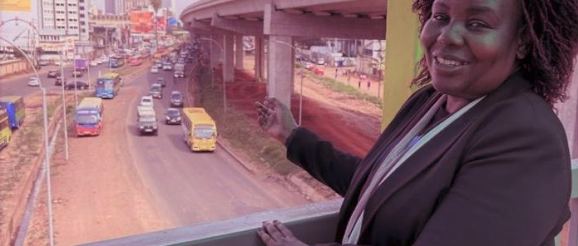Kenya moves to become a leader in green energy and innovation – Green Building Africa

Standing on a pedestrian bridge above one of Nairobi’s busiest roads, Ann Masiga watches a stream of private minibuses ferry commuters to their homes around the city. Even a few metres above the traffic, the air is thick with gasoline and diesel fumes. Masiga is working hard with the Kenyan government to fix the disorganised transit service and the bad air. “Better transport, water and energy, these are all big deals for this country,” says Masiga, a loan officer in Nairobi for the European Investment Bank. “Poor infrastructure or poor transport systems are an impediment to everything — getting kids to school, getting a job, getting food, getting to the hospital. I don’t get tired of focusing on these issues because my work has a positive impact on many ordinary Kenyans.” One of Masiga’s biggest projects in 2023 is a new rapid-transit bus network for the capital. Currently without any formal transport system, Nairobi will soon have modern bus terminals, platforms to get on and off buses easily, well-lit bus stops, paths for pedestrians and bicyclists, and dedicated bus lanes on the overcrowded highways. The project includes one of the first all-electric bus lines in East Africa. Masiga was a key part of the European Investment Bank team that prepared a €201 million loan for the electric line. The deal includes a €32 million grant from the European Union. “We’re going to really make a difference to the Nairobi public service system,” says Masiga, whose career as a public servant is inspired by her mother, Elizabeth Semo Masiga, a pioneer for women’s education in Kenya and the first female permanent secretary in the Ministry of Education. “It will have a knock-on effect that could change transport systems throughout the country.” Linking climate and innovation in Kenya Linking climate and innovation in Kenya
The new electric bus line is a measure of how closely Kenya’s future is linked to climate action and innovative technologies. A leader in renewable energy, the country is increasing its investments in green technology, as well as encouraging businesses to be innovative and more willing to look across the continent for opportunities and growth. The country is developing initiatives to boost food supply, support small farms, improve exports, and be more inclusive towards disadvantaged parts of society. The electric bus is a key artery in the body of this forward-looking Kenya, where maize farmers walk through fields with their eyes trained on mobile apps to improve yields. Where mango producers use state-of-the-art cold-storage technology to preserve crops. And the country’s advanced geothermal plants are the model for renewable energy programmes replicated all over Africa. Kenya’s story today is one of the old coexisting with the futuristic, of traditional smallholder farming without tractors or machinery alongside the most advanced green energy technology and digital mobile payments systems, of women working in time-honoured family roles and also finding prominent positions in the management and creation of businesses. “If you talk to people here, they can be very pessimistic, but if you see what we have done in the past in this country, you just say to yourself, ‘We can do much more in the future,’” says XN Iraki, a professor in the Faculty of Business and Management Sciences at the University of Nairobi. Iraki grew up in the countryside without power, running water, a refrigerator or stove. Later he taught in the United States, but when he returned to his country he found a widespread drive to innovate. “I have no reason to believe that this country’s future is not bright,” he says. Author: Chris Knight Source: European Investment Bank (EIB)
